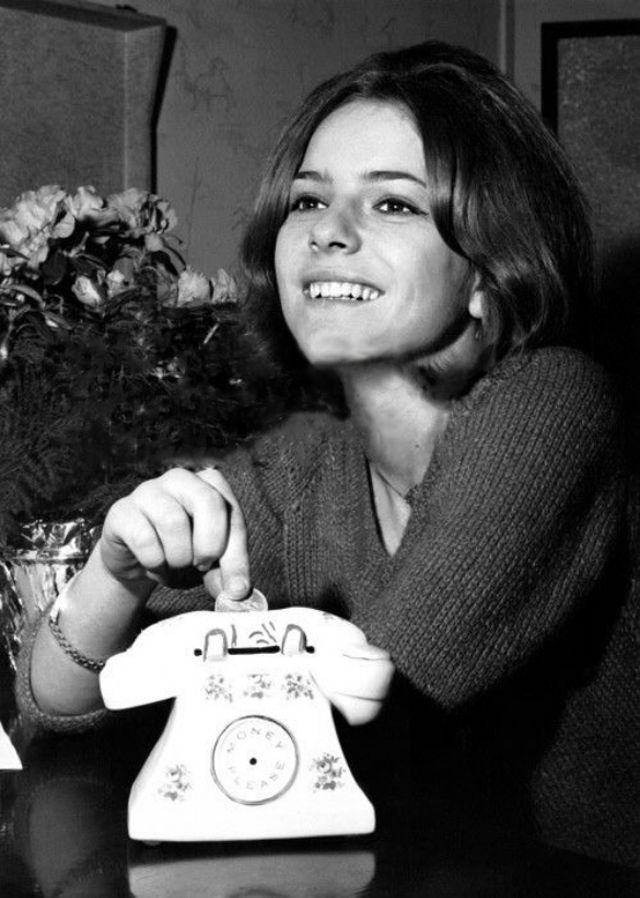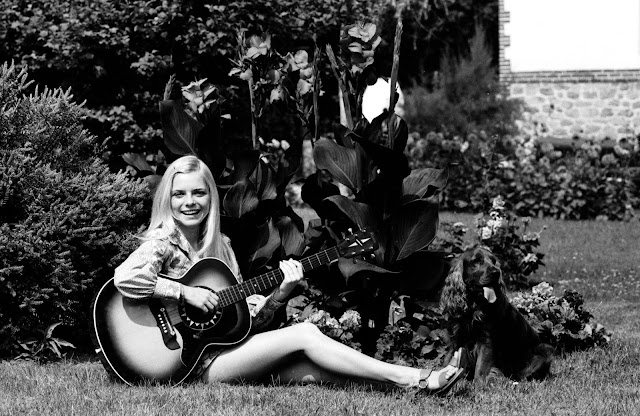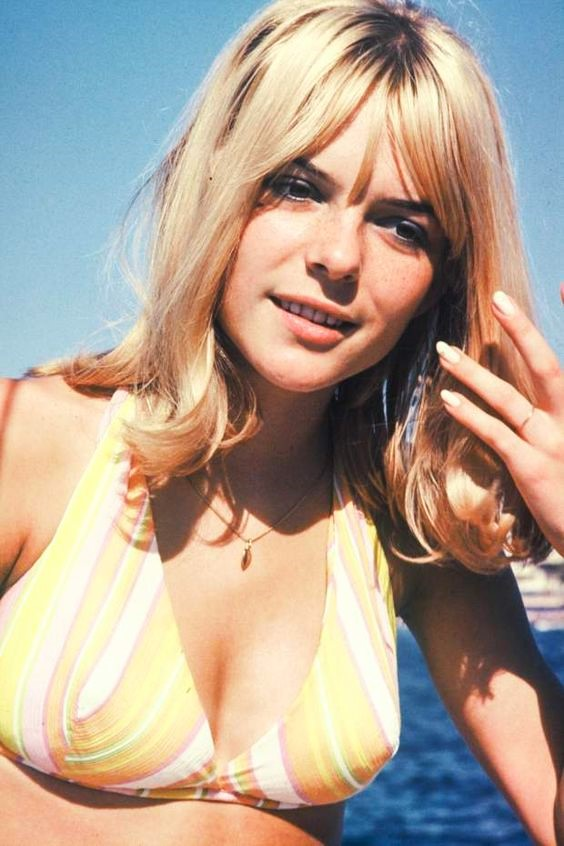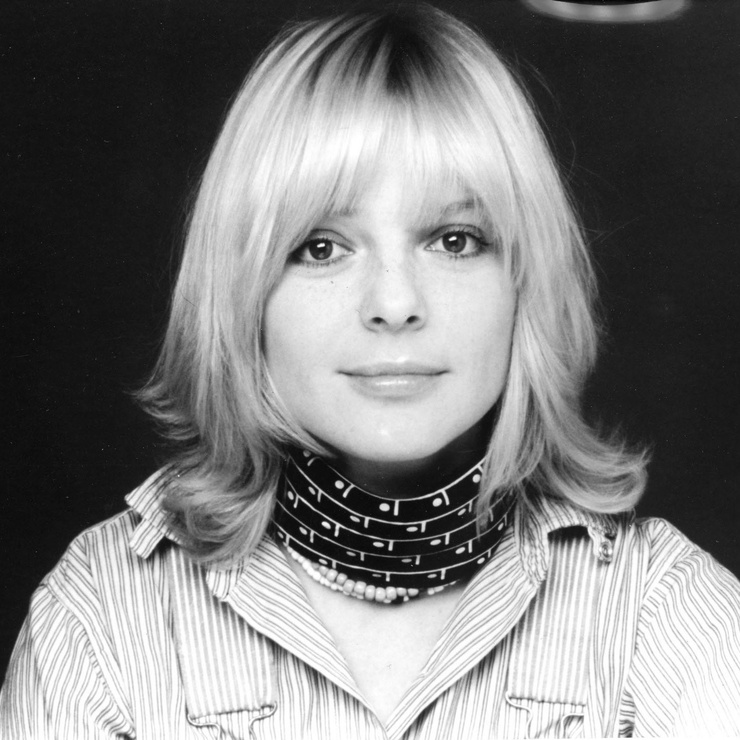A Musical Force Whose Echo Still Lives in Every Chorus
Some artists fade when the spotlight dims—but France Gall is one of those rare voices that never really leaves the room. Even if you weren’t around for the golden age of yé-yé pop, chances are you’ve heard her songs, her influence, or her unmistakable charm woven into modern music. She was that blend of innocence and intensity, the kind of singer who could turn a simple melody into a heartbeat. And her life? A story of bold beginnings, reinvention, love, heartbreak, and resilience that made her as unforgettable as the songs she left behind.

Let’s dive into the world of the girl who became an icon—France Gall, the voice that defined a generation and continues to inspire new ones.
Parisian Beginnings: A Childhood Shaped by Song
France Gall was born in Paris—one of those cities where music seems to float in the air, drifting from cafés and echoing through narrow streets. With a father who wrote lyrics for major French stars and a mother who carried music in her own spirit, France grew up with melodies woven into the rhythm of daily life.
Yet she wasn’t the kind of child who shouted her dreams from rooftops. Quiet, introspective, and shy, she kept her ambitions tucked away like handwritten lyrics in a notebook. But talent is hard to hide. Her father recognized her gift and recorded a simple demo that traveled straight into the hands of people who knew the music business inside and out.

In 1964, at only sixteen, France Gall was signed to Philips Records. One moment she was strumming in her family home; the next, she was stepping into studios, working with producers, and carving out a sound that would soon take France by storm.

The Yé-Yé Sensation: Her Breakthrough Into Pop Stardom
If you picture France Gall in the mid-1960s, imagine pastel dresses, retro microphones, and the energy of a youth-driven French pop movement ready to explode. Yé-yé was bright, catchy, and built on youthful rebellion. Perfect timing for a teenager with a fresh voice and natural charm.

Her early hits—like “Laisse tomber les filles”—shot up the charts. But fate truly lifted her when she crossed paths with Serge Gainsbourg, one of France’s most unpredictable and brilliant songwriters. He penned “Poupée de cire, poupée de son,” a clever, layered pop song dressed in a sugar-sweet melody. France embraced it, not realizing it would catapult her onto the world stage.

In 1965, at just seventeen, she represented Luxembourg in the Eurovision Song Contest. Imagine the nerves—crowds watching, cameras rolling, the pressure soaring. Yet she delivered with flawless grace and won the entire competition. Overnight, France Gall became a European pop sensation.
Her voice was youthful yet confident, playful but emotional. People connected with her instantly—because she wasn’t trying to be anyone else. She simply was France Gall.

Evolution and Reinvention: Navigating Fame’s Storms
Success came fast, but so did controversy. Some of Gainsbourg’s later songs for her carried double meanings she didn’t realize at the time, sparking headlines and leading to emotional turmoil. Feeling betrayed and misunderstood, France stepped back and reassessed her path.
While France cooled toward her, Germany embraced her, and she reinvented herself as a Schlager star. Her German-language singles soared across Europe, proving she wasn’t just a French pop girl—she was a multilingual, genre-flexible force.

Her personal life was buzzing too, with high-profile relationships that sometimes helped and other times complicated her public image. But in every song, you could hear her heart pushing through. She wasn’t someone who quit when the world got loud—she adapted.
Michel Berger: The Love and Partnership That Changed Everything
Everything shifted again in 1974 when France Gall met Michel Berger—the songwriter, producer, and musical visionary who would become the love of her life. He wrote a song for her, “La Déclaration d’amour,” and the two connected instantly, both professionally and emotionally.

Their partnership revived her career in ways she never expected. Together, they crafted a more mature sound—elegant, heartfelt, and deeply emotional. Albums like Babacar, France Gall, and Tout Pour la Musique highlighted her evolution from teen sensation to respected artist.
They married, became one of France’s most celebrated cultural couples, and welcomed two children. Their work together shaped an entire chapter of French pop history—an era filled with radio hits, sold-out tours, and a new level of artistic depth for France Gall.

But life can be cruelly unpredictable. In 1992, Michel Berger died unexpectedly, leaving France devastated. She poured her grief into music, releasing their final collaborative project, Double Jeu, as both a tribute and a farewell.
Unimaginable Loss and an Unbreakable Spirit
Just when she thought her heart had endured its greatest test, tragedy struck again. In 1997, her daughter Pauline passed away due to cystic fibrosis. The loss broke her in ways she rarely spoke about publicly. France withdrew from the stage, stepping away from the spotlight to heal.

And yet, her resilience shone through. She founded a charity to support children with cystic fibrosis, turning her grief into an engine for hope. Her philanthropy became another dimension of her legacy—one rooted in compassion rather than applause.
Even through multiple battles with cancer, remained gracious, grounded, and remarkably strong. She lived quietly, leaning on family and the memories she cherished most.
The Enduring Legacy of France Gall
France Gall passed away in 2018, but her voice—sweet, pure, emotional—continues to echo across generations. Modern artists still cover her songs, remix her classics, and draw inspiration from her fearless reinventions. Younger listeners discover her through movies, nostalgia playlists, and digital revivals of yé-yé culture.
What makes her legacy so lasting? It’s simple: France Gall sang with honesty. She lived with courage. And she proved that reinvention is not a weakness—it’s a form of survival.

Conclusion
France Gall’s life reads like a melody—bright beginnings, dramatic crescendos, heartbreaking lows, and a soft landing into timelessness. She wasn’t just a pop star; she was a woman who grew, loved deeply, grieved profoundly, and still found ways to move forward.
She is France Gall, a voice of an era and a heart that continues to resonate. Her legacy is more than music—it’s the reminder that true artistry comes from soul, struggle, and the courage to keep singing.
